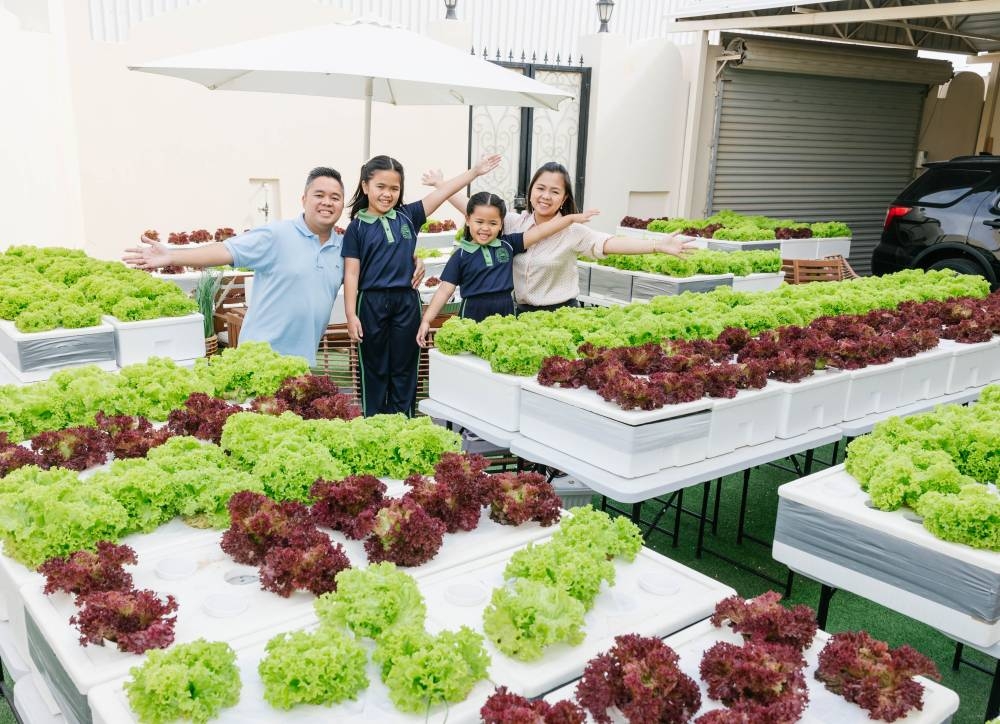But it was in March 2022 after moving to a much larger house that Adaya realised the potential for hydroponics gardening despite a few trials and errors along the way.
He explained to Gulf Times the potential of hydroponics gardening in addressing some of the challenges facing modern agriculture, such as limited land availability, water scarcity, and environmental degradation.
By sharing information and promoting the use of hydroponics gardening, Adaya hopes to help raise awareness of these issues and encourage more people to adopt sustainable and efficient methods of agriculture.
GULF TIMES: Is indoor hydroponics gardening possible if one does not have ample outdoor space?
ADAYA: Yes, indoor hydroponics gardening is a great option for people who do not have ample outdoor space, as it allows them to grow plants indoors without soil. Hydroponic systems can be set up in a small space, such as a spare room, closet, or balcony, and can produce a high yield of plants compared to traditional soil-based gardening.
With hydroponics, you can grow a wide variety of fruits, vegetables, herbs, and flowers, and you can control the growing conditions, such as light, temperature, and nutrients, to optimise growth and yield. Additionally, indoor hydroponics gardening can be a fun and rewarding hobby, and it can even help reduce your carbon footprint by reducing food transportation and waste.
For those who want to get started in hydroponics gardening, what is the initial cost of investment? Kindly provide an overview of the budget for a small, medium, and large garden.
The hydroponic method that I am using is called “Kratky Method,” which is simple and adaptable for small home gardens. This passive method of hydroponics only requires a few basic supplies, such as container with lid (I use styro box), styro cups, growing medium (I recommend using cocopeat), nutrient solutions, and seeds.
The average cost for a DIY small setup (one box/starter kit), which can produce about eight to 10 lettuce heads (or other vegetables of choice), is QR100 to QR150. A medium setup with around 50 boxes that can produce about 400 to 500 lettuce heads may cost around QR2,000 to QR3,000, while a large garden setup with around 100 boxes for 1,000 lettuce heads would cost about QR5,000 or more.
What varieties of vegetables could be grown in this climate through hydroponics gardening?
There are many varieties of vegetables that can be grown in an outdoor hydroponic system in Qatar during the cold months (November till the first week of May).
Some popular choices include:
- Leafy greens: Lettuce, spinach, and kale are all good choices for hydroponic gardening in the winter.
- Herbs: Basil, parsley, and mint are herbs that can be grown in a hydroponic system during the winter.
- Root vegetables: Carrots, beets, and radishes can all be grown in hydroponic systems during the winter, although they may require a bit more attention than other vegetables.
- Tomatoes: Cherry tomatoes can be grown successfully in hydroponic systems during the winter, as long as they receive enough light and warmth.
- Peppers: Bell peppers and hot peppers can also be grown in hydroponic systems during the winter, as long as they are provided with sufficient heat and light.
What are the benefits of hydroponics gardening?
Hydroponic gardening, which involves growing plants in a soil-free medium and delivering nutrients directly to the roots, has several benefits, including increased productivity and yield, water conservation, no soil-borne diseases, space efficiency, and educational benefits.
Overall, hydroponic gardening can have a positive impact on one's professional, social, personal, and family life by promoting sustainability, efficiency, and education.
What life lessons can hydroponics gardening teach children and why is it important to pass on the knowledge of hydroponics gardening to the younger generation?
Hydroponic gardening can teach children several valuable life lessons, including responsibility, patience, science and environmental awareness, nutrition, and creativity and problem-solving.



